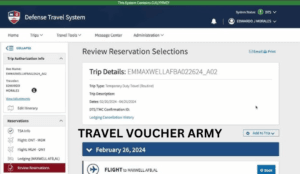
Understanding the intricacies of VAT (Value Added Tax) can be daunting, especially for businesses operating in the USA. Unlike many countries where VAT is a standard practice, the U.S. has a different system known as sales tax. However, as globalization grows and companies interact internationally, understanding VAT and the concept of a company vat number usa becomes increasingly important. This guide aims to clarify what a VAT number is, how it applies to U.S. businesses, and its significance.
What is a VAT Number?
A VAT number, or Value Added Tax number, is a unique identifier assigned to businesses that are registered for VAT. VAT is a consumption tax placed on goods and services at each stage of production or distribution. This number is crucial for companies engaged in international trade, as it helps streamline cross-border transactions and ensures compliance with tax regulations.

Do U.S. Companies Need a VAT Number?
In the USA, businesses do not use VAT as part of their domestic tax system. Instead, they deal with sales tax, which varies by state. However, if a U.S. company is involved in international trade, particularly with European Union (EU) countries or other regions where VAT is implemented, understanding VAT and obtaining a VAT number becomes essential.
When Would a U.S. Company Need a VAT Number?
International Trade
If your U.S. business sells goods or services to customers in countries that use VAT, you may need to register for a VAT number in those countries. This is particularly relevant if you exceed the threshold for VAT registration in that country.
E-Commerce and Digital Services
Businesses offering digital products or services to customers in the EU or other VAT-implementing countries often need to register for VAT. This is due to specific VAT rules governing digital goods and services.
How to Obtain a VAT Number for International Transactions
1. Registering for VAT in the Relevant Country
To obtain a VAT number, your company must register with the tax authorities in the country where you need the VAT number. This process involves providing information about your business, including your business activities and financial details.
2. Understanding the Thresholds
Each country has its own VAT registration thresholds, which determine when a business must register for VAT. Ensure you are aware of these thresholds to avoid any compliance issues.
3. Keeping Up with VAT Compliance
Once registered, you must comply with the VAT regulations of the country. This includes submitting regular VAT returns, maintaining proper records, and ensuring that VAT is properly charged and reported.

What Information is Required for VAT Registration?
To register for a VAT number, you’ll typically need the following information:
- Business Name and Address: The official name and address of your business.
- Business Activities: Details on what your business does and the nature of its transactions.
- Financial Information: Data on your annual turnover and any other relevant financial information.
- Proof of Business: Documentation proving that your business is legitimate and operational.
VAT Number Format and Structure
European VAT Numbers
European VAT numbers generally follow a format that includes the country code followed by a unique identifier. For example, a UK VAT number might look like GB123456789.
VAT Numbers in Other Countries
Different countries have varying formats for VAT numbers. It’s essential to understand the specific format used in the country where you are registering.
The Role of VAT Number in International Transactions
A VAT number plays a significant role in international transactions, ensuring that:
- You Are Recognized as a Valid Business: It confirms your legitimacy and compliance with international tax regulations.
- Tax is Properly Managed: It helps manage the VAT you owe and are entitled to reclaim.
- Transactions Are Processed Smoothly: It facilitates smoother cross-border transactions and reduces the risk of legal issues.
Challenges for U.S. Businesses with VAT
Complexity of Regulations
VAT regulations can be complex and vary significantly from one country to another. Keeping track of these regulations and ensuring compliance can be challenging.
Administrative Burden
Managing VAT registration, returns, and compliance adds an administrative burden to your business operations, which can be time-consuming and resource-intensive.
Tips for Managing VAT Effectively
1. Seek Professional Advice
Consider consulting with a tax professional or advisor who specializes in international VAT regulations. Their expertise can help navigate the complexities and ensure compliance.
2. Use Accounting Software
Invest in accounting software that can handle VAT calculations and reporting. This can streamline your processes and reduce errors.
3. Stay Updated
VAT regulations can change frequently. Stay informed about any changes in the VAT laws of the countries where you do business.

Conclusion
While the U.S. operates with a sales tax system, understanding VAT and how it applies to international transactions is crucial for businesses engaged in global trade. By obtaining a VAT number and managing VAT compliance effectively, U.S. companies can streamline their international operations and ensure smooth cross-border transactions.
Navigating VAT regulations may seem daunting, but with the right knowledge and resources, you can manage your VAT responsibilities effectively and maintain compliance in the international marketplace.
What is the difference between VAT and sales tax?
VAT is a consumption tax applied at each stage of production, while sales tax is a single-stage tax applied at the point of sale.
How can I check if a VAT number is valid?
You can use the VAT Information Exchange System (VIES) to verify the validity of a VAT number.
Do all international transactions require a VAT number?
Not all transactions require a VAT number, but many international transactions, especially within the EU, do.
Can I reclaim VAT on business expenses?
Yes, businesses can reclaim VAT on eligible business expenses, depending on the regulations of the country where you are registered.
What happens if I don’t register for VAT when required?
Failing to register for VAT when required can result in penalties and legal issues. Ensure you understand the registration thresholds and requirements for the countries you do business in.
How often do I need to file VAT returns?
The frequency of VAT returns varies by country. Some require monthly returns, while others may be quarterly or annually.
What should I do if I make a mistake on my VAT return?
Correct any mistakes as soon as possible and follow the procedures outlined by the tax authorities in the relevant country.
Is VAT registration required for all businesses?
VAT registration is required based on the nature of your business activities and the thresholds set by the tax authorities in the relevant countries.
How do I cancel a VAT registration?
To cancel a VAT registration, contact the tax authorities in the relevant country and follow their procedures for deregistration.
Can I use a VAT number from one country for transactions in another country?
Typically, a VAT number is specific to the country where it is issued. Ensure you comply with the VAT requirements of each country where you conduct business.

